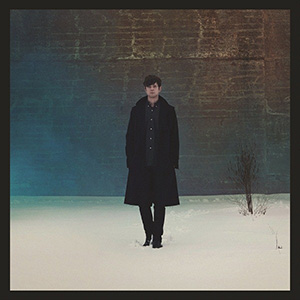James Blake Overgrown
It almost seems unfair to continue to compare the James Blake of now to the […]

It almost seems unfair to continue to compare the James Blake of now to the James Blake of 2010. Were it to be detached from Blake’s past and taken on its own as a work of crossover-ready electronic pop, one could accept his second album, Overgrown, as a mixed yet generally likable record—one which certainly isn’t without its failings, but is intermittently impressive and on a rare handful of occasions utterly brilliant. Yet for any electronic-music fan that remembers Blake’s impeccable breakout releases of oddball dubstep for Hemlock, Hessle Audio, and R&S, the comparison is almost inescapable, and it’s one which does Overgrown few favors.
It’s hard to begrudge Blake his success; while—frustratingly—his shift away from electronic production towards the more traditional singer-songwriter archetype might not represent him at his best, it’s undoubtedly opened him up to a fanbase far broader than any of his former post-dubstep peers and, as crossovers artists go, there are far more grating presences out there than Blake. At the same time, this transformation does seem to have had the effect of leaving him slightly out of his depth. On more than one occasion on Overgrown, one is left with the impression that Blake isn’t entirely in control of the overall vision in the way he once was.
It’s most prominent on “Take A Fall For Me,” a fairly lightweight slow jam centered around a downright bizarre, English-accented vocal from RZA. As a producer, Blake has previously demonstrated a real talent for manipulating and reworking vocals from hip-hop and grime MCs. Most notably on “Confidence Boost” and “Saying”—two early Harmonimix edits which were finally released on R&S last year—Blake chopped and repitched a pair of Trim acapellas to absolutely flawless effect, maintaining the idiosyncrasies of Trim’s voice while adding atmosphere and energy through breathtakingly on-point production. Similarly, on his wonderful bootleg version of Lil Wayne’s “A Milli,” Blake used minimal production and some fairly straightforward vocal editing to string masses of tension out of Weezy’s half-slurred vocal. By comparison, Blake’s half-hearted attempts to add repitched backing vocals here just sound weak and RZA’s semi-novelty verse remains noticeably unedited. It’s as if, having achieved the coup of getting a member of Wu-Tang to appear on his album, Blake doesn’t feel that he has the authority to properly reshape the vocal (or, for that matter, ask if it might be possible to try it one more time but without the peculiar references to fish and chips and stout.)
Still, there are moments on Overgrown when Blake’s unquestionable skill as a producer shines through. On the album’s lead single, “Retrograde,” the interplay between his delicate, looping vocal melody and a surprisingly aggressive synth drone elevates what would be a fairly forgettable ballad into a genuinely enjoyable pop song. Elsewhere, the playfully G-funk-informed synths that appear at the climax of “Life Round Here” provide a much-needed contrast to the overall sense of melancholy that runs through the LP. With its delay-driven beat, “Digital Lion”—a collaboration with Brian Eno—is a winner too, although it’s questionable whether Eno’s physical presence here is any more audible than his general influence is elsewhere on the album.
“Voyeur” proves to be far and away the album’s finest moment, however. Here, he finally lets go of the morose restraint that hangs over the rest of the album and creates a joyous, sluggish house groove out of vocal loops, cowbells, resampled piano, and some wonderfully noisy synth lines. While it’s still a more straightforward affair than, say, his dancefloor breakthrough “CMYK,” it provides a hugely welcome reminder of how good Blake can be when he loosens up a little.
Compare “Voyeur” side-by-side to Overgrown‘s straight-up piano ballad “Dim”—an utterly forgettable three-minutes of vaguely miserable filler—and it becomes difficult to deny that James Blake the producer has a lot more to offer the world than James Blake the singer-songwriter. At his best, he’s able to convey huge amounts of feeling with nothing more than minimal vocal samples and a few well-placed synth chords, yet too often here he ends up saying a lot without conveying anything more than an unspecific sense of misery. At it best moments, Overgrown proves that the two sides of James Blake—the dancefloor oddball and the crossover songwriter—can exist side by side, but it also demonstrates that, at least right now, the balance between the two is totally off.

